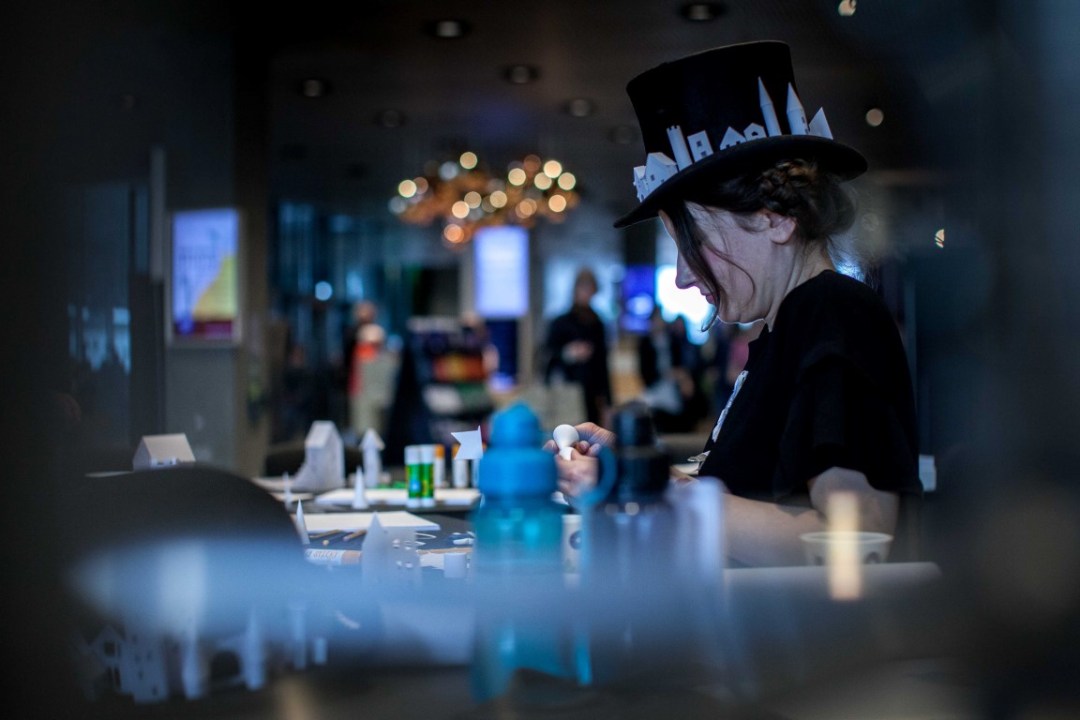Maybe you have heard us talk about the CounterPlay festival as a “prototype” of the playful society. I’d like to dive a little deeper into that idea, since it’s basically the most important reason for the festival to exist. It’s our BIG dream to contribute to a strong movement towards the playful society. There’s not an endpoint to this, of course – when is a society truly playful (enough)? It’s more of a guiding principle, a compass for our continued efforts. It reminds us that it’s never just about the festival (even now, when it steals most of our attention). There’s always something bigger, more substantial at stake here: society in it’s entirety. The point is that the festival should mirror the values and principles of play, not just in the content presented, but in the experiences, the atmosphere, the way you feel when you’re there. It should, essentially, be a prototype of the playful society, albeit on a much smaller scale.
What, then, characterises a playful society?
Participation
It’s a core tenet of play that in order to play, you participate, and participation “requires actual power and decision making to be put in the hands of those you expect to play along” (Play as Participation). This takes many forms, including the ongoing negotiation between players: what are we playing? What are the rules? The roles? The purpose? In a playful society, we are all participants, and we all have real power to shape the conditions for our shared lives together.

Openness
When we play, we’re present and open to the world and each other in a very unique way. We put ourself into play, so to speak, and we accept that our thoughts, ideas and assumptions challenged. We agree to step out of our “comfort zones”, to explore the unknown, and to embrace unpredictability.
Empathy
“When we play with other people – friends, family, colleagues or strangers – we share the responsibility, and we need to be present in the moment, right here, right now. You are open to the world, aware, listening, anticipating, embracing what the other person brings. This is rarely more visible than in the eyes of people playing with each other. The way they shine, the pure joy, this is as close to magic as it gets. In this sense, play becomes a demonstration of empathy, an exploration of being together in ways that respect us all. Play is a lesson in humanity, a gentle reminder of all the things we have in common across age groups, nationalities, religions, socio-cultural backgrounds and other differences that usually keep us apart.” (The togetherness of play)

Imagination
Play opens up your mind and your imagination. You see the world in a different light, interpret things differently, and you refuse to simply adhere to common logic and assumptions. You’re not fully disconnected from the “real” world, but you bend and shape the world of play so it feels right. Anything can be anything, and even the most trivial objects or procedures can be endlessly thrilling. Playful people maintain the connection with their imagination, can always find another way, and thus refuse the widespread “politics of necessity”.
Joy
When we’re in that particular playful state of mind, engaging in playful play, we feel a deeply satisfying and pleasurable sense of joy. Play is joyful and we shouldn’t be afraid to fully embrace this feeling. Don’t misunderstand it as hedonism and don’t be afraid of what other people might think, it’s a vital component of the good life. You might argue that the joy of play is not real since it’s fleeting and not necessarily sustained for long outside play. You can and you should choose to savour these moments, but you can also make them a regular occurrence throughout your life by living playfully.
Hope
With so many terrible things happening, what we need more than anything is hope. Where are we, if we lose hope that the world could be different, that it could be better and more just? In play, there is always hope. With our spirits high, our imagination all fired up, and a strong sense of trust in the play community, we instill in each other the courage to hope. If your approach to life is playful, there is always hope, because you instinctly know that the situation could be different.

There’s much more to play than this, obviously, but these are important traits, which we aim to build into the festival. Our goal is that everyone feel that participation is real, that they allow themself to be more open and that others do the same, that we extend our empathy, sets our imagination free, and feels a deep sense of both joy and hope.
What’s worth noticing here is not that this happens at the festival, no, it’s that it can happen anywhere. We don’t have any unique skills, we don’t have access to massive resources or an established platform. If we can create a space where this atmosphere thrives then it should be possible to do the same all over society. Any institution, organisation, company or public space can cultivate a playful culture, where people can actively play a role in strengthening our hope and opportunities for the future.

